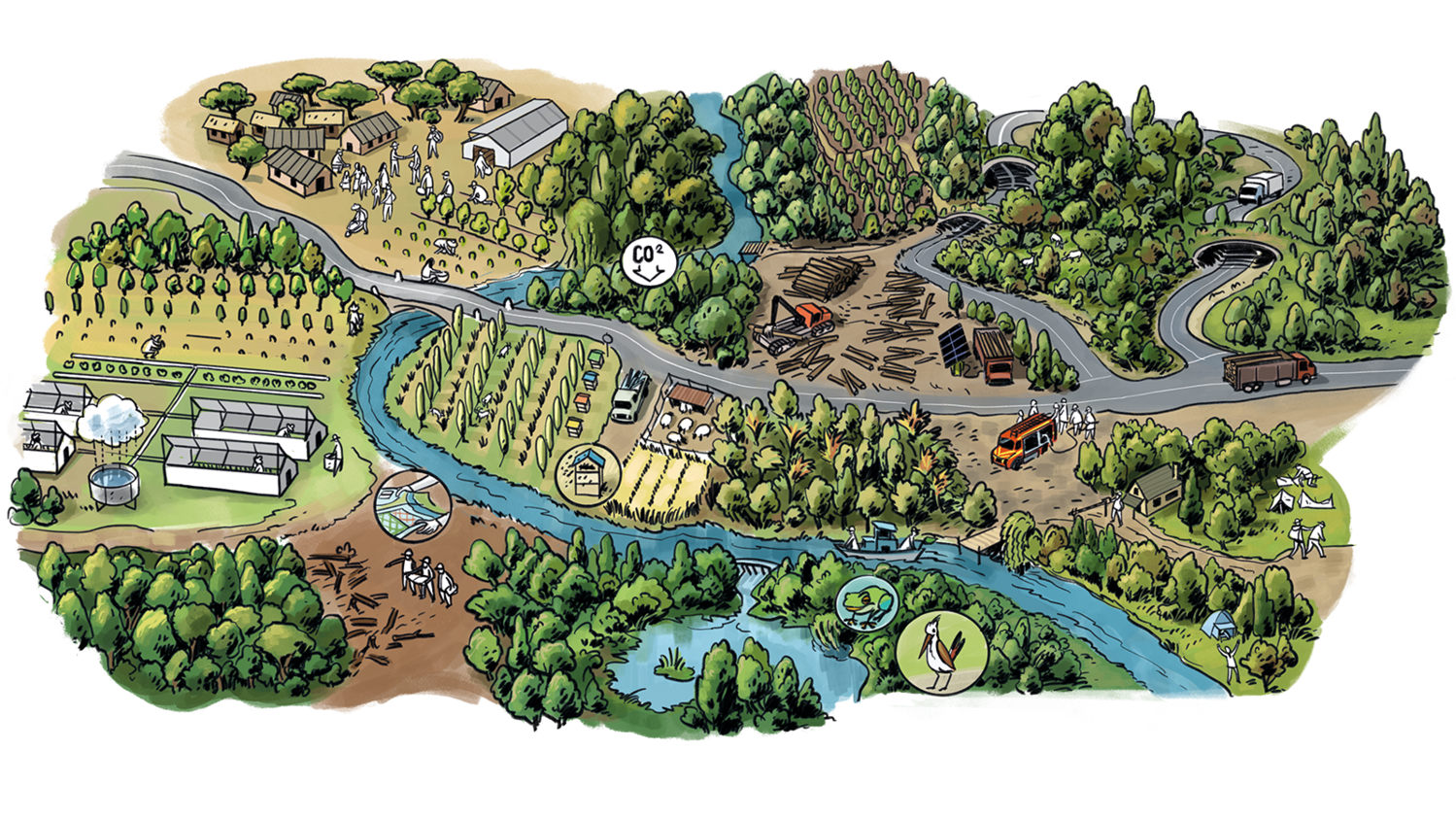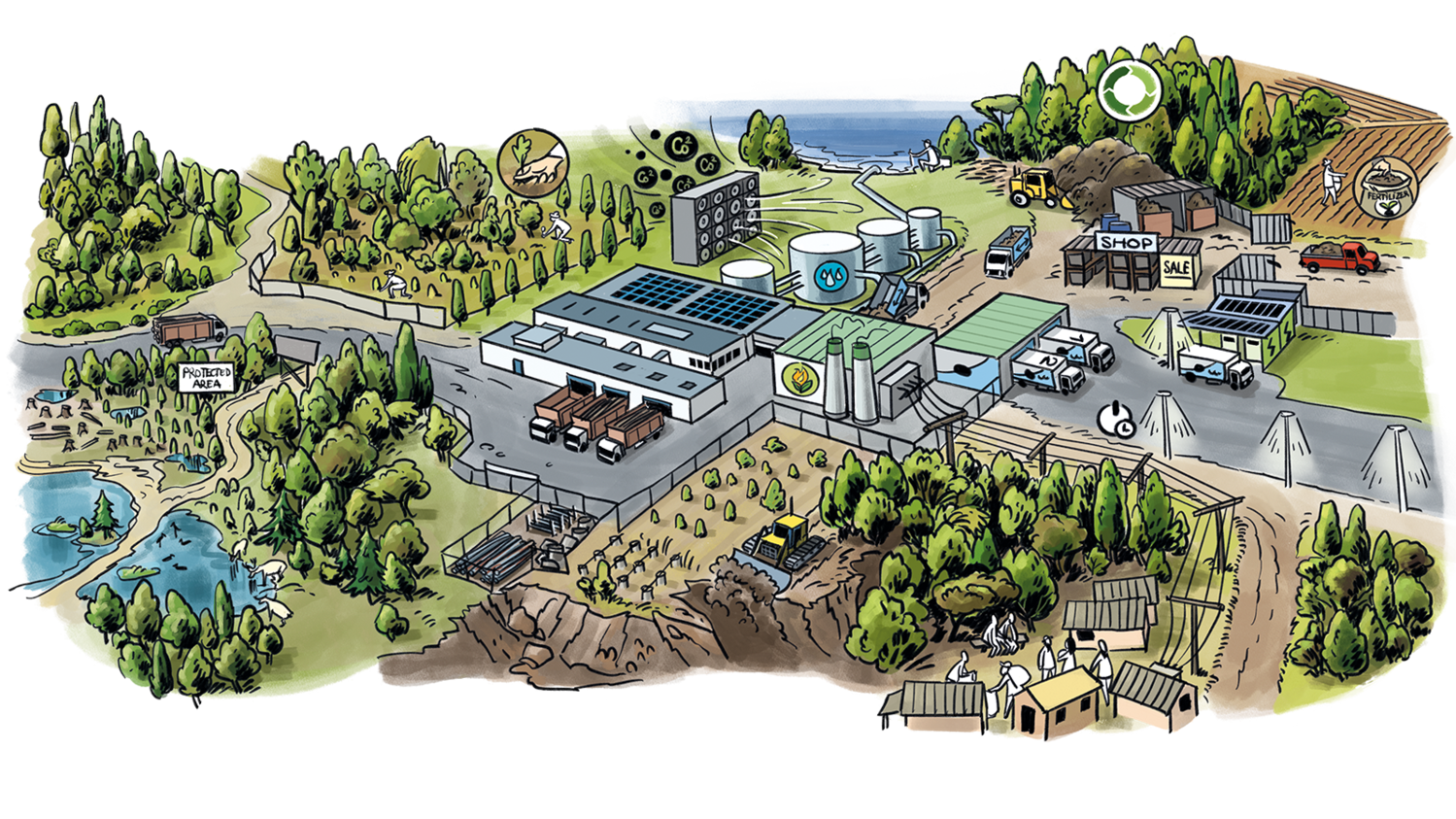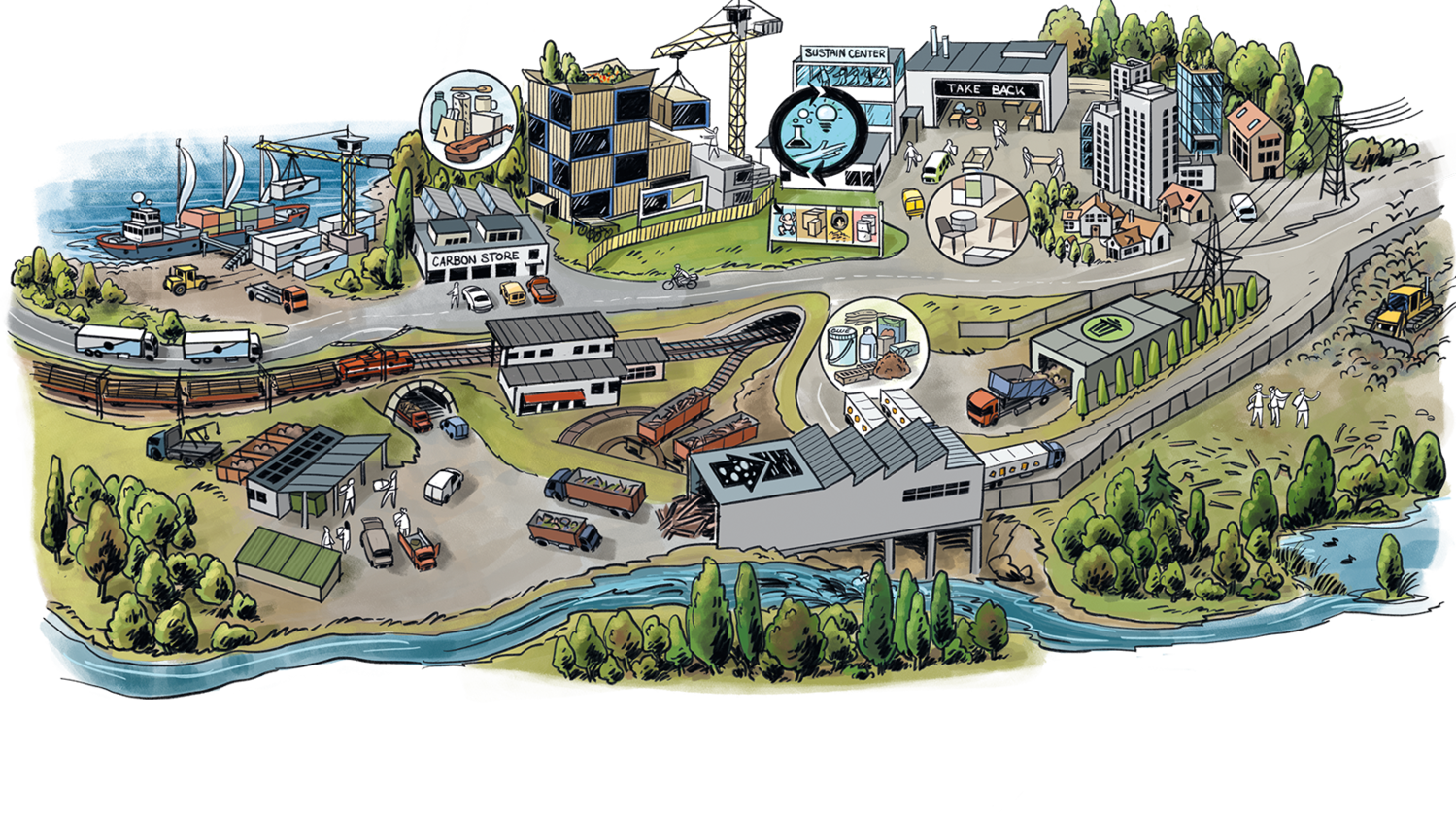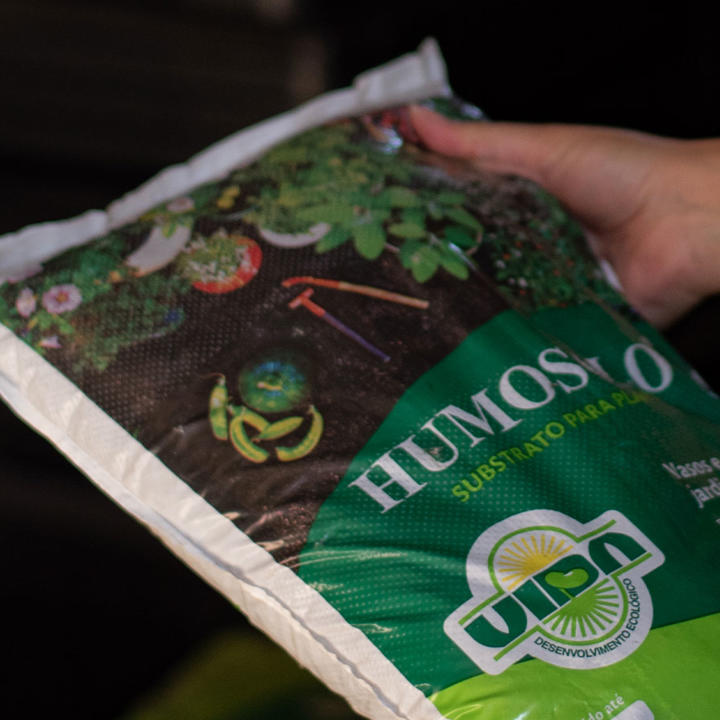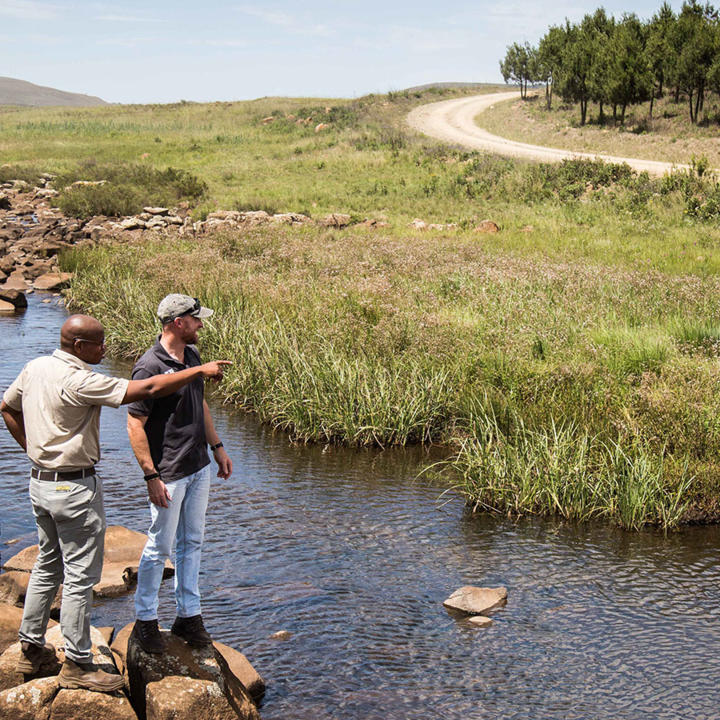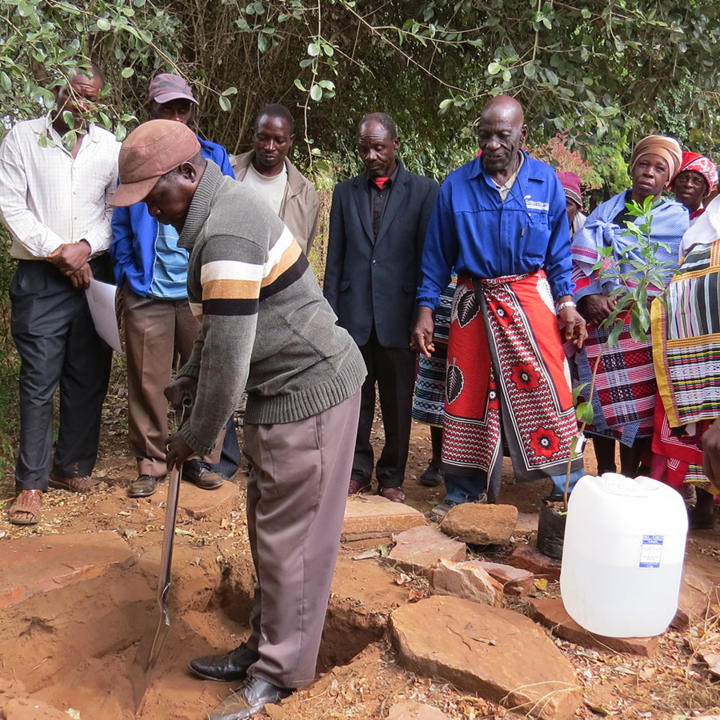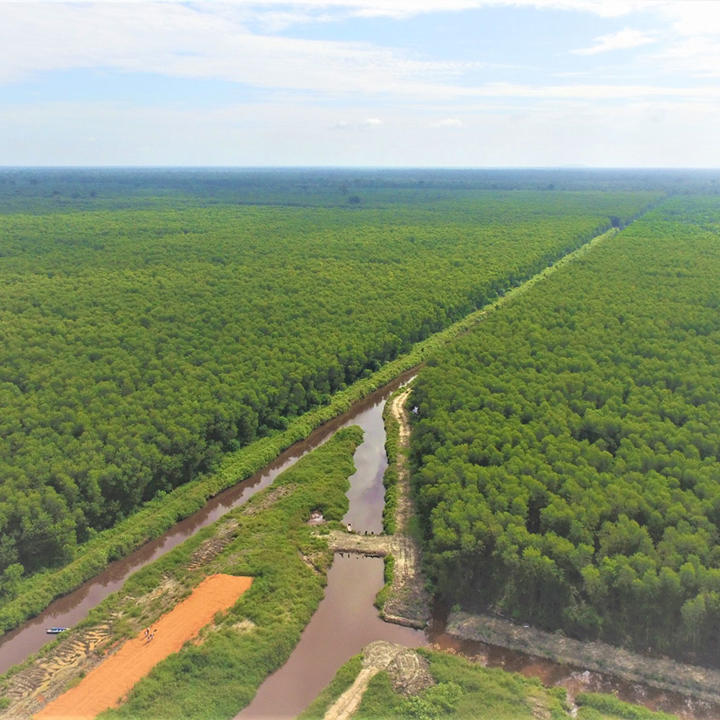Forest Sector Nature-Positive Roadmap

This report offers a shared definition of nature-positive for the forest sector as a bedrock for subsequent guidance and tools to support forest companies in the implementation of nature-positive strategies. The definition is grounded in a comprehensive set of actions forest companies should take to halt and reverse nature loss along the full value chain, to chart a course to the transformation of individual forest companies, the sector and the broader economic system in which they operate.
Nature-positive action along the life cycle of forest products
Forest companies contribute toward nature-positive by promoting sustainable forest management practices in the forests they manage and source from. The perpetual cycle of harvesting and planting ensures a renewable supply of wood for the circular bioeconomy while providing multiple benefits such as carbon sequestration, clean water, habitat and economic livelihood.
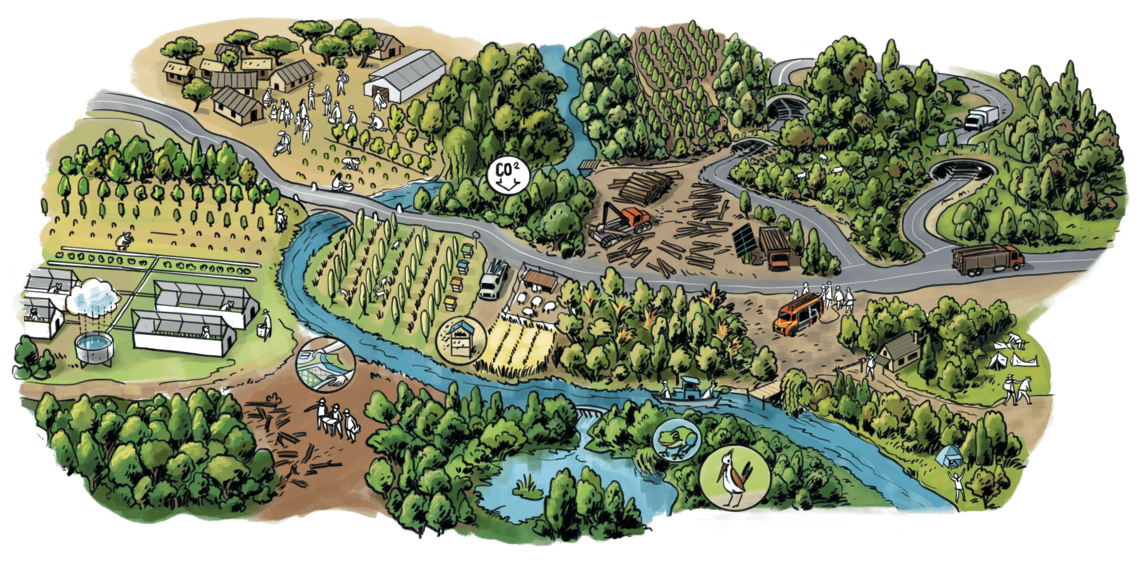
Reduce water use, waste and pollution in nurseries and forests
Preserve forest diversity when replanting after harvest
Avoid deforestation, and the conversion of areas of significant biodiversity value to intensively managed forests
Reintroduce native or endangered tree species adapted to climatic conditions
Reduce need for land through land use optimization
Enhance carbon removals in soils and forests
Protect water bodies, as well as areas of significant biodiversity and carbon value
Restore areas of significant biodiversity and carbon value
Reduce carbon emissions and biodiversity impacts related to harvesting
Reduce impacts related to climate change and invasive species
Restore connectivity between habitats
Reduce occurrence of poaching and illegal logging
Action to avoid impact on nature
Action to restore & regenerate nature
Action to reduce impact on nature
Forest companies contribute toward nature-positive by halting and reversing the impacts on nature related to the processing of harvested wood, and the manufacturing of products for everyday use, such as pulp, paper, packaging, tissue paper, building materials, biomaterials or bioenergy.
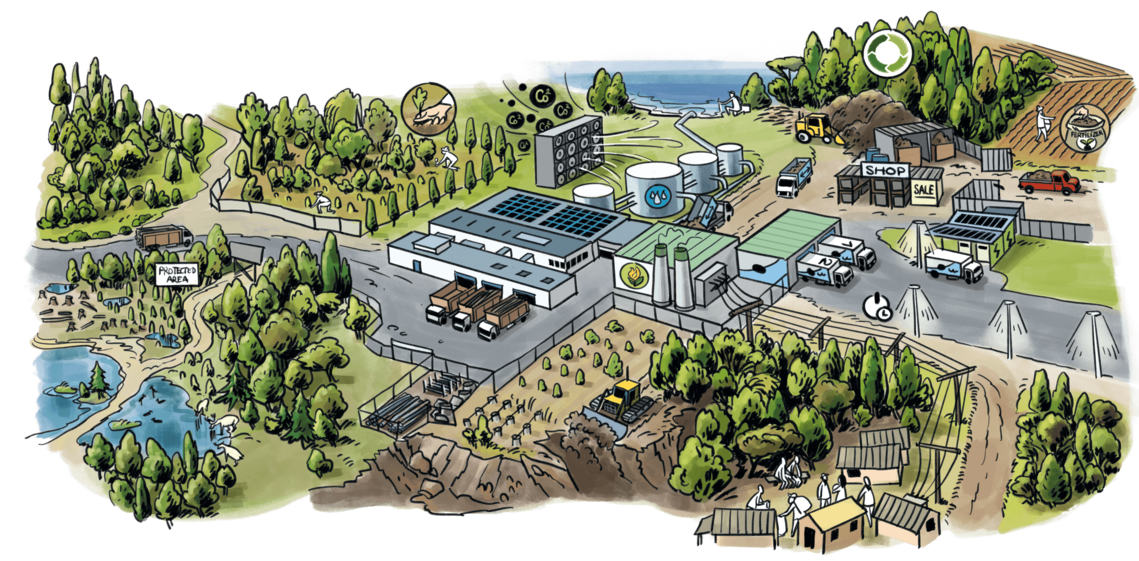
Reduce water use, waste and pollution
Avoid establishing new operations in areas of significant biodiversity value or water stress
Restore areas of significant biodiversity value in or around mill sites
Reduce carbon emissions and air pollution
Reduce and reuse operational waste
Reduce noise light and odour pollution from operation
Restore sites of decommissioned facilities
Action to avoid impact on nature
Action to restore & regenerate nature
Action to reduce impact on nature
Forest companies contribute toward nature-positive by reducing the impacts of transportation, and by working with customers and other downstream partners to stimulate the use, reuse and recycling of sustainable forest products and waste streams, as well as their safe disposal.
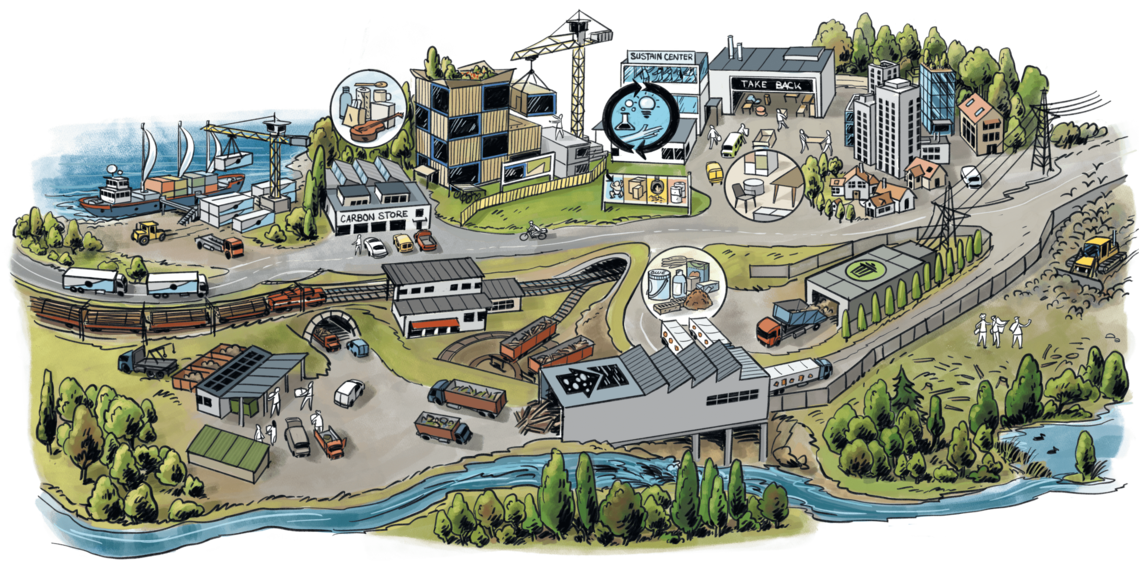
Reduce carbon emissions, as well as water and air pollution from transportation
Reduce use of unsustainable materials by scaling up the circular bioeconomy
Reduce waste by promoting the recovery and recycling of forest products
Reduce need for new products by enhancing product lifetime
Reduce waste by promoting the reuse of residuals and byproducts by other industries
Reduce air, soil and water pollution from waste disposal
Avoid establishing new waste management facilities in or around areas of significant biodiversity value
Action to avoid impact on nature
Action to restore & regenerate nature
Action to reduce impact on nature

